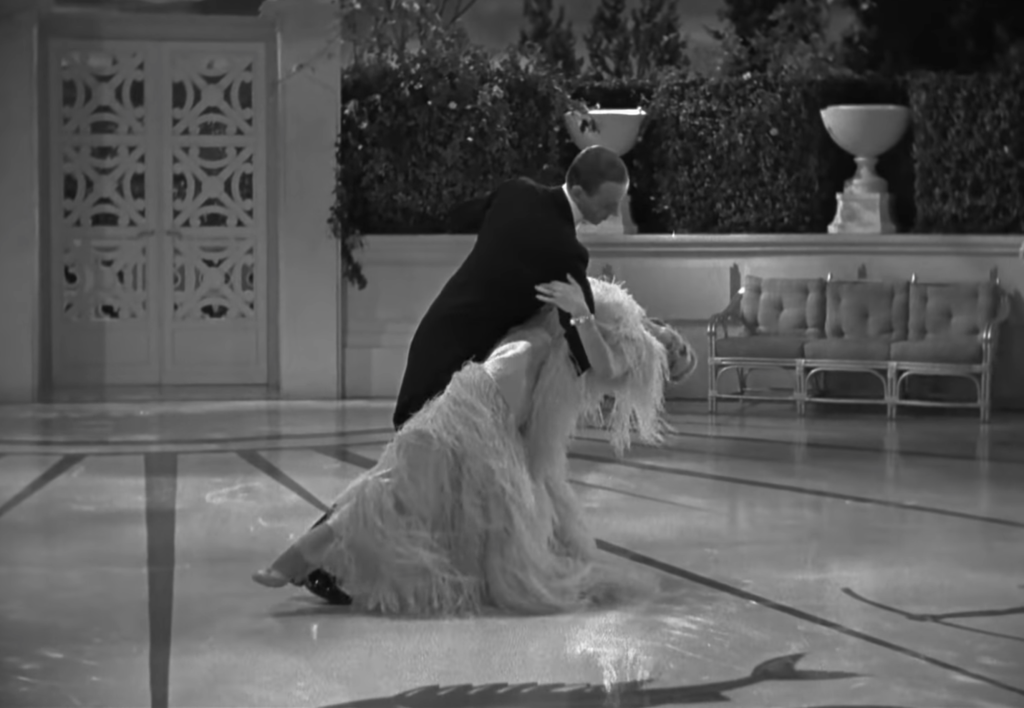
Film Matters: Please tell us about your article that is being published in Film Matters.
Nolan Crawford: My article is a comparative analysis of three films, two of which are classic screwball comedies from the 1930s and the third of which is a film from the 1980s whose surrealist plot relies and comments on the screwball comedy genre. My original hope was to focus solely on the brilliant subversion of the genre and its voyeuristic tendencies which Woody Allen brings to his 1980s film, The Purple Rose of Cairo. But, in actually writing the essay, the article got to a bigger message. This bigger message was one on class and the predatory nature of Hollywood studios in the Great Depression, coopting working-class desires through film. It was a huge pleasure to see this article evolve as I wrote it.
FM: What research and/or methodologies do you incorporate in your article?
NC: The most important component of the research was for me to watch the films each several times over and take time to analyze them in their entirety but also scene by scene. This process was where I uncovered the real meat of my argument. However, there is also an excellent body of secondary literature on the screwball genre, which was helpful for grounding my arguments in the bigger scholarly picture. And, additionally, taking time to look at the incredible photos captured by photographers during the Great Depression provided context to the history that the films did not.
FM: Describe the original context for/when writing this article while an undergraduate student.
NC: I wrote this article as a final project for a class I took in my senior year, entitled Classical Hollywood Narrative. The class’s focus was analyzing films from the Golden Age of Hollywood while also understanding the history of Hollywood at that time, how it changed through that period and what we see today as a result. What surprised me more than the things that have changed are the things that haven’t. There is still work to be done, but it excites me to see a great diversity of people, many my age, out there doing it!
FM: How has your department and/or institution supported your work in film and media?
NC: While I was never a full-time student in the film department at Yale, I know that it is a world class program, and I felt that in every class that I took that interfaced with it. And Yale is incredibly supportive of creative endeavors and how important they are to understanding the world around us by cultivating empathy. This kind of institutional attitude should never be discounted.
FM: How has your faculty mentor fostered your advancement as a film scholar?
NC: Our wonderful professor, Camille Thomasson, taught our class on classical Hollywood with compassion and insightful commentary from our current vantage in contemporary culture. She quickly became a mentor because she was so open and giving of her time, working with me to uncover a passion I had for some films I had never even considered. Without her guidance, I don’t know if I could’ve produced an article like this one that I’m quite proud of, let alone felt confident enough in my film criticism to submit the essay for publication
FM: How has the Film Matters editorial and publication process impacted the development/evolution of your article?
NC: Film Matters is a fantastic institution both in its professionalism and in its consideration of the work and ideas being put out there every day by undergraduates. Film can hit anyone in a way that is both relevant and insightful, but much of that thought never gets a platform. I’ve gained invaluable experience working through the peer editing process, allowing my thoughts to develop even further. Also, having the opportunity to see how images can pair with my writing is a unique opportunity, so I’m excited to see how the article appears in publication.
FM: What audience do you hope to reach with your Film Matters article and/or what impact do you hope it has on the field of film studies?
NC: Firstly, I think people interested in the sociocultural dynamics of the Great Depression will be interested in understanding how Hollywood acted in that world. Additionally, people who enjoy films that comment on genres and then try to subvert them would enjoy seeing how Allen’s film does this with a genre that, in the end, is quite farcical. However, I hope most of all that it encourages anyone with a passing interest in film broadly to give classical Hollywood films a chance. They are awesome, and they’ve formed the basis for so much that we see on screen today.
FM: What are your future plans?
NC: As of right now, I’m working in consulting in the financial services sector, gathering skills that will serve me anywhere going forward. However, knowing my deep passion for film and media, I could easily see myself reengaging my studies in the subject or embarking on a career in those industries. I can’t say just yet, but I know I’ll keep seeing films and writing about them in whatever capacity I can.
Author Biography
Nolan Crawford is a graduate of Yale University in political science, and he has always been passionate about film as a medium for telling human stories. His focus at Yale was in democratic theory and protest movements. Currently, he works in management consulting for the financial services sector.



































